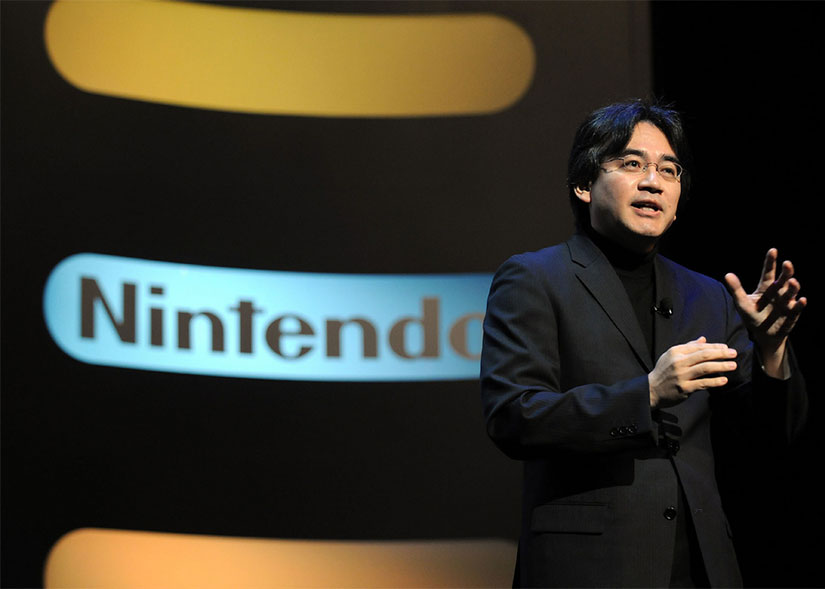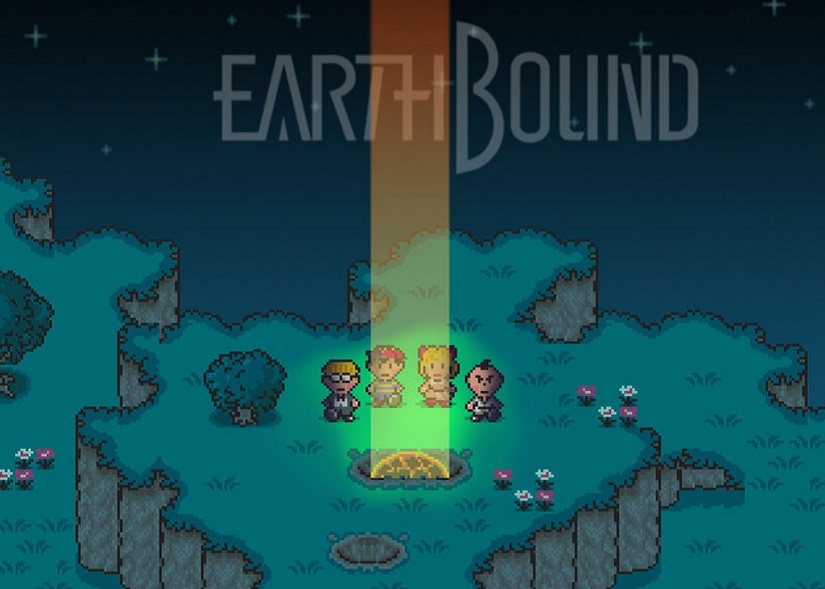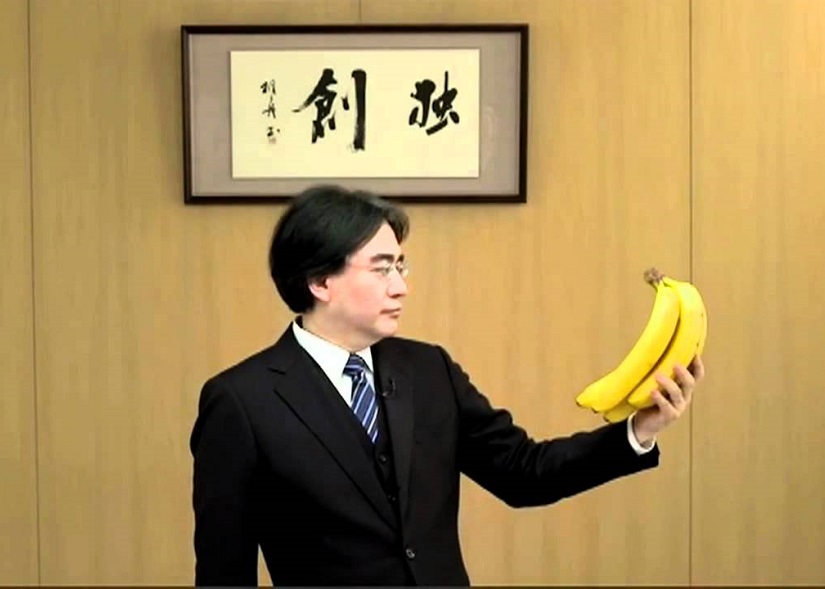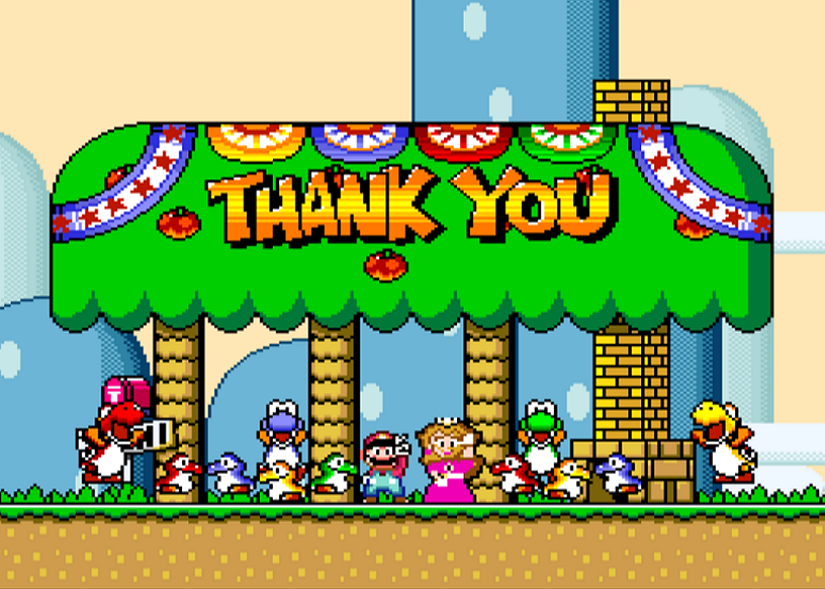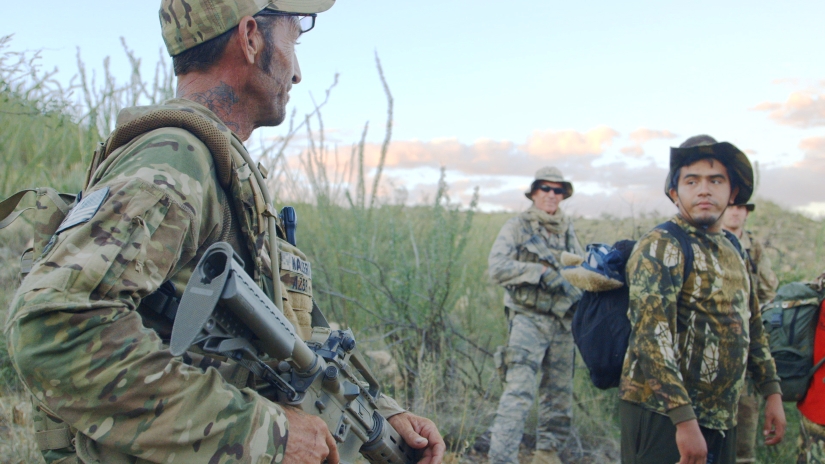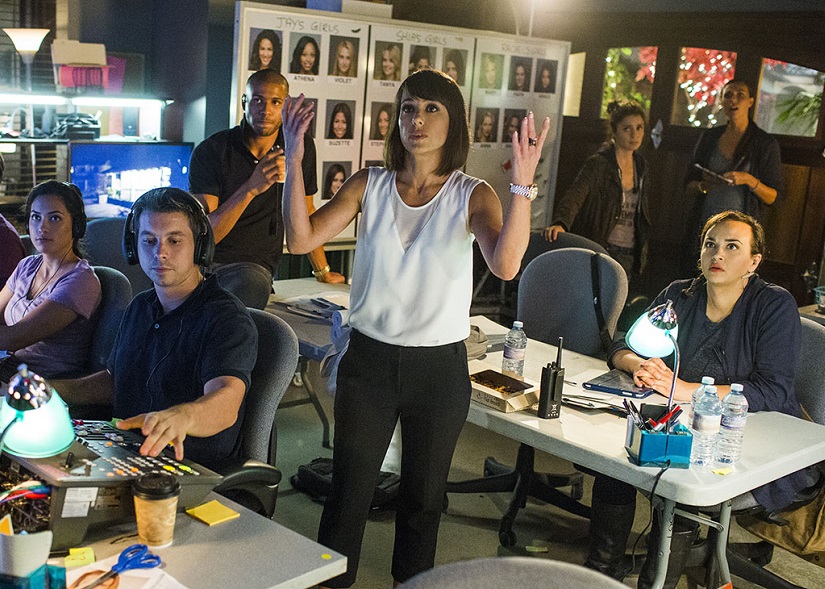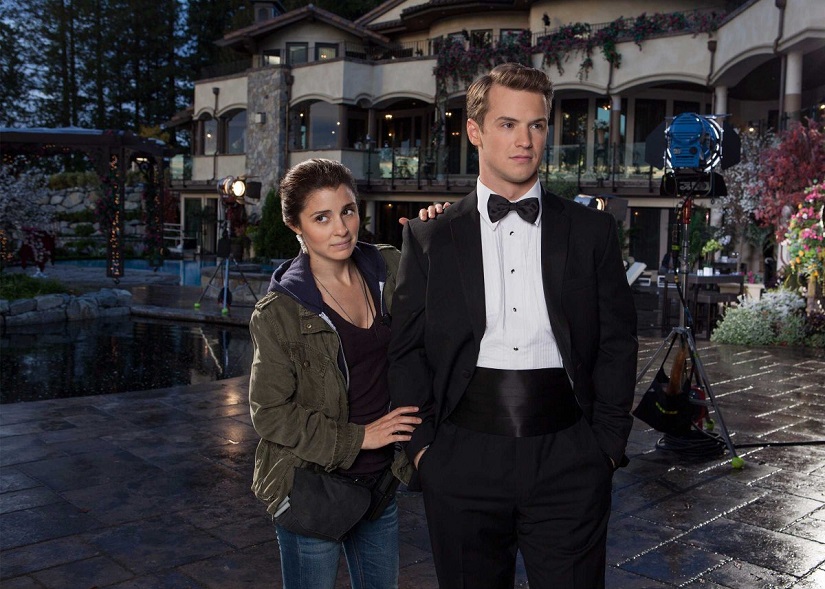New 33 1/3 Books on Devo, Dead Kennedys, and Super Mario Bros Are Criticism Done Right
There's an old, dismissive joke about music criticism: "Writing about music is like dancing about architecture--it's a really stupid thing to want to do."
That's funny, sure, but good music critics can dance like motherfuckers. Dancing is fun, it's stimulating, it's potentially generative. When people can dance as well as they do in the 33 1/3 series, that's something that should be celebrated. (Here I am, dancing about dancing.)
The 33 1/3 series began publishing pocket-sized books of music criticism in 2003, each focused on a single album, each a sustained work of long-form criticism. The best entries in the series are exceptional culture writing. Some of the standouts include Celine Dion's Let's Talk About Love: A Journey to the End of Taste by Carl Wilson, James Brown's Live at the Apollo by Douglas Wolk, David Bowie's Low by Hugo Wilcken, Public Enemy's It Takes a Nation of Millions to Hold Us Back by Christopher R. Weingarten, and Television's Marquee Moon by Bryan Waterman. (Waiting on my shelf to be read: Big Star's Radio City by Bruce Eaton and a novella about Black Sabbath's Master of Reality by Mountain Goats frontman John Darnielle.)
[youtube id="j_QLzthSkfM"]
Three of the recent 33 1/3 books focus on seminal works of the early '80s: Devo’s Freedom of Choice by Evie Nagy, Dead Kennedys’ Fresh Fruit for Rotting Vegetables by Michael Stewart Foley, and, the first entry on videogame music in the series, Koji Kondo’s Super Mario Bros. by Andrew Schartmann. Each of the books are fine additions to 33 1/3. In other words, they dance like motherfuckers.
Form and content are the most basic aspects of aesthetic criticism, and while that's part of the discussion in each of these three new books, the authors also find ways of exploring the time and the place that gave birth to each album. If it's questions of form and content that determine the relative success of individual works of art, it's questions of time and place that help fashion the form and the content, and it's the intersection between the elements of form, content, time, and place that help determine the enduring legacy of the art.
Let's give each of these new 33 1/3 books a quick look. For more information on the books and the series, visit the 33 1/3 site.
Highlights from San Diego Comic Con 2015
I've been to dozens of expos, conventions, festivals, and the like over the years, but my favorite type of events have always been comic book conventions. From the dozens of vendors selling unique items and hard-to-find collectibles to the amazingly talented cosplayers to meeting your favorite artists and writers, I've always enjoyed my time at the various comic book conventions I've attended. In recent years, they've become larger pop culture events in which film studios screen their latest films and trailers, cast members come out for intimate Q&As, and con attendees get their exclusive sneak peeks at everything the world will be talking about later that week.
San Diego Comic Con has grown to become the comic book convention to go to in the United States, and while I wasn't in attendance this past weekend (SDCC '17, my eyes are on you), I've compiled some of the weekend's best highlights. Whether you're a dedicated comic book fan waiting to hear what Marvel and DC have up their sleeves, a film fan excited for the first glimpses at 2016's top superhero films, or just really enjoy good cosplay, we have you covered! Also, check out the Suicide Squad footage if you haven't yet!
Remembering Nintendo's Satoru Iwata, The CEO Who Made The World Smile
There can be few higher aspirations in life than bringing joy and happiness into the lives of others. Former Nintendo President, Satoru Iwata, who died yesterday aged 55, achieved this for millions of people around the globe. When we think of CEOs these days, we imagine soulless corporate suits crushing those lower down the ladder in pursuit of profit. Iwata could not have been further from that image. At a keynote speech in 2005, he famously stated that: "On my business card, I am a corporate president. In my mind, I am a game developer. But in my heart, I am a gamer."
Having stated his career as something of a prodigal talent in programming, working on such titles as Balloon Fight, Earthbound and various Kirby games, Iwata ascended the ranks at Nintendo to become the company's first President not descended from the Yamauchi bloodline. Where his predecessor, Hiroshi Yamauchi, was every bit the stoic, fiendishly brilliant businessman, Iwata transformed Nintendo into a company with a welcoming face that suited their line of games and characters which had been a staple of so many fondly-remembered childhoods.
Iwata never lost his passion for the video games medium and his achievements are spoke of in hushed tones throughout the industry. He coded the NES classic Earthbound all on his own. He debugged the entirety of Super Smash Bros Melee in three weeks to ensure the game hit its scheduled release date. He ported the battle system from the original Pokémon Game Boy games to Pokémon Stadium in a week without any help from design documentation. When Game Freak were struggling to contain the world they had created for Pokémon Gold and Silver into a single Game Boy cartridge, Iwata developed a compression technique so efficient that the developers were able to fit the entirety of the previous games' world in there as well. If Shigeru Miyamoto was the genius behind many of the company's most enduring mascots, Iwata was the technical master whose brilliance may have operated behind the curtain, but was no less impressive or important.
It was during his tenure as Nintendo President that Iwata truly began leaving an imprint on gamers' hearts and minds. He oversaw the creation of two of the world's most successful and innovative consoles, the Wii and the DS handheld. Both were dismissed at launch by competitors, yet went on to achieve groundbreaking global sales. For all they lacked in cutting edge hardware, both offered a diversity and whimsy in their games library that could not be found anywhere else. It was during this time that Iwata also began working to soften the company's image, offering an unprecedented level of openness and accessibility to its fans. In his Nintendo Direct online presentations, which he used periodically to announce updates on new games, he showed off a famously self-deprecating, meme-conscious sense of humour as the loveable half of a double act with Nintendo Of America's burly COO, Reggie Fils-Aimé. In his Iwata Asks interviews, he gave unprecedented insights into the thought processes of some of the world's most important game developers.
When the Wii's successor, the Wii U, struggled out of the gate, Iwata showed that his kindness was not limited to his public persona. Facing severe pressure from shareholders to lay off employees and embrace the cynical practices of free-to-play gaming which had become so prevalent and lucrative elsewhere, Iwata resolutely stuck to his guns, firmly believing in the importance of respecting and trusting the company's core fanbase. In 2014, he elected to cut his salary in half in order to avoid having to cut employee numbers as a consequence of poor financial results. This act of astonishing humility and, yes, understanding stood in stark contrast to the actions of other multinational CEOs at the time, who spent much of the financial crisis protecting themselves and their salaries at all costs.
Whether remembered making his signature 'direct' hand gesture, holding up a bunch of bananas, or in the puppet form so immediately embraced in last E3's Digital Presentation, Iwata personified all the qualities which made Nintendo so special to so many people around the world, never straying from his core belief that video games are meant to be fun for everyone. He oversaw one of the most creatively and financially successful periods in the company's history. Even with the recent downturn in fortunes with the struggles of the Wii U, he was in the process of modernising the company with moves into mobile gaming and toys-to-life, on course to right the ship without compromising its all-important central values. Most importantly, he was a man of singular nobility, talent and generosity, who was always loved and respected even by those who sometimes did not agree with his decisions. The outpouring of grief following his passing is testament to how deeply he was loved by those touched by his work and who felt welcome into the accepting, open-hearted Nintendo community he was instrumental in creating. Though his death leaves us with tears in our eyes, his legacy left smiles in our hearts.
Thank you, Iwata-san. You really were a Super Player.
R.I.P. Satoru Iwata, 1959 - 2015
Cartel Land Shows Why the War on Drugs May Be Unwinnable
Released last week, Matthew Heineman's documentary Cartel Land has been roundly lauded for its harrowing, on-the-ground chronicle of the Mexican drug war. Heineman trains his lens on two vigilante groups. One is the Arizona Border Recon (ABR), a small militia-like force that patrols the Arizona/Mexico border led by veteran Tim "Nailer" Foley. The other is a much larger Michoacan vigilante organization known as the Autodefensas, led in charismatic fashion by physician Jose Manuel Mireles. Both Foley and Mireles were driven to create their groups by a sense that their respective governments weren't doing enough to confront drug cartels head on. While Foley and Mireles never meet face-to-face in the film, Heineman joins then narratively to compare and contrast these two faces of vigilantism.
Danger is palpable throughout much of Cartel Land, a testament to Heineman's embedded approach and his commitment to it. The camera is there in the thick of shootouts and drug raids south of the border, and we're given ample access to the inner workings of the Autodefensas, both good and bad. Heineman also tags along with Foley in tense and often silent stakeouts to spot border crossers who are purportedly drug mules and/or drug smugglers. (The Arizona Border Recon was originally founded to stop illegal immigrants; the Southern Poverty Law Center considers the ABR an extremist group. Make of that what you will.)
In Manohla Dargis' mixed/negative review of Cartel Land at The New York Times, she said that for all of Heineman's bravery behind the camera, he needed to exercise more of directorial point of view about the war on drugs and vigilantism. Heineman has a point of view, though I think it's quietly articulated in his comparison of the ABR and the Autodefensas, and also the overall narrative trajectory of Cartel Land. The point of view, as it seems to me, is that vigilante groups are ill-suited to address the greater challenges posed by the war on drugs, and that the war of drugs may ultimately be unwinnable (unless you're a drug cartel).
[youtube id="6JD7hPM_yxg"]
As vigilantes, Mireles and Foley seem to embody different heroic ideals in order to propel and even legitimize their groups. Mireles is like some romantic revolutionary of old, coming from the common folk and armed with a compelling personal narrative, the proper face for a populist uprising. Watch him make a speech to a crowd besieged by drug violence, see him interact with fellow members of Autodefensas--there's the air of the charismatic leader, the sort of person who attracts followers through lofty rhetoric and force of will. Mireles' second-in-command is more like Santa Claus than Che Guevara, and he doesn't have nearly the same amount of respect or command of the group. Foley, by contrast, seems taken by the Wild West idea of the cowboy and the gunslinger, even citing old-time notions of vigilantism as a way of justice and making it a way of life. (The spirit of the open frontier may be something inherent in the ideologies of most militia or paramilitary groups.) In that regard, Foley and the ABR posse are the only law left when the fellas with tin stars can't get the job done themselves.
These vigilante and revolutionary ideas are potent fuel for a movement, but they can become complicated by the compromises required to put ideas into meaningful action. That makes up the meat of Cartel Land's second half. We first watch the Autodefensas make major strides against the Knights Templar drug cartel in individual raids, but the purity of the group begins to falter as it becomes bigger and better known. Mireles becomes a media figure for the movement, and as a consequence he and his family are placed in real danger by drug cartels looking to retaliate or to strike first before the Autodefensas get to them. Power grabs within the Autodefensas, malfeasance by its members, abuses of power, and increased interest by the Nieto government in co-opting the movement mean that the Autodefensas may be destined to fail regardless of those initial good intentions.
Foley's group, by contrast, always remains small in scale, and Foley himself never becomes the face of a movement for the media. The operation is small, manageable, and seemingly incorruptible in that regard, but its size means a limited impact on the drug war. The ABR don't seem to win battles in the war on drugs. They don't even necessarily win skirmishes, for that matter. It's unclear what lasting effect they have, if they're a stone thrown in a lake making ripples, or just hail dropping in a pond and vanishing.
If governments and large institutions are ineffective or ineffectual, and if vigilante groups are either hobbled by growth or limited in impact, what solutions are there to the drug war? Similarly, if there's a constant demand for drugs, and if cartels will fill their ranks with new members and new leaders when one of their own is incarcerated and killed in order to meet that demand, is the drug war even worth fighting in the current way it's being fought?
Heineman doesn't present any solutions, but that's not a mark against the things Cartel Land does so well, which is to say its embedded journalism. Documentaries aren't always meant to answer questions. If they can, that's great, but like good philosophers, the primary role of a documentary filmmaker may be to ask the right questions, or to reframe the questions we've been asking, or to reconsider the underlying reasons we ask the questions that we ask.
Eric Kohn points out something important in his Cartel Land review at IndieWire. The film opens with Heinemen watching masked men cook meth in the nighttime. The meth cook says he knows that the drugs will harm people when they're smuggled over the border. That admission seems to acknowledge that the cartel violence in Mexico claims innocent lives and he knows it's just part of the trade. Later in Cartel Land, we hear some of these stories. There's one about babies being murdered, and one about laborers killed at a lime farm because the landowner didn't pay a cartel protection money.
"But what are we going to do?" the meth cook asks. "We come from poverty."
Good question.
[RH Photos] Weezer Headlines at the 35th Annual Taste of Chicago
Photos by AngieStar Photo
The 35th annual Taste of Chicago kicked off yesterday in Grant Park's Petrillo Music Shell, with Weezer as their first headlining band. The 2015 Taste of Chicago is featuring over 100 menu items from 60 food trucks, pop-ups and restaurants representing Chicago’s diverse culinary community. But of course, the food isn't the only thing, the live music has been well known at the festival and this year is no different.
From beginning to end, Weezer performed smash hit after hit such as "Say it Ain't So", "Beverly Hills", "Hash Pipe", and many more. They even introduced a newer track titled, "Go Away", from their fourth album Everything Will Be Alright In The End. As it began to rain, the night ended with an encore performance of "Buddy Holly" that turned the crowd way up.
Yesterday was only beginning as Petrillo Music Shell still has a few more headliners still to go:
July 9, 5:30 p.m. ERYKAH BADU, Trombone Shorty & Orleans Avenue
July 10, 5:30 p.m. THE CHIEFTAINS, Special Consensus
July 11, 4:30 p.m. SPOON, Houndmoth, Madisen Ward & The Mama Bear
July 12 4:30 p.m. MAZE featuring Frankie Beverly, DJ Duane Powell
Reserved seating starts at $15 and the lawn is FREE. To purchase tickets visit the Taste of Chicago website.
In case you missed their set, be sure to check out these photos:
Did This Week's UnREAL Go Too Far?
UnREAL, Lifetime's new drama about a devious young television producer working on a fictionalised version of The Bachelor, was renewed for a second season earlier this week on the back of a wave of critical adoration. The show has managed to find traction with a much younger audience than the network's typical output, while the performances of Shiri Appleby and Constance Zimmer have attracted awards buzz. In other words, the show is giving Lifetime the reach, attention and respectability it has rarely enjoyed before, all while staying true to its essential remit of producing compelling women-oriented television.
Where that might typically mean the schlocky silliness epitomised by Kristen Wiig and Will Ferrell's parody, A Deadly Adoption, which the network gamely aired earlier this year, UnREAL isn't without its soapy plot twists but grounds them with a cast of complex characters whose moral compromises provide much of the show's real tension. The setting, a barely-disguised riff on The Bachelor entitled Everlasting, is its own little slice of brilliance, allowing the writers to employ the over-the-top melodrama so typical of reality TV, with the caveat that such contrivances exist because the characters are working overtime to make them happen. It's an inspired conceit, for which creators Marti Noxon and Sarah Gertrude Shapiro deserve great credit. It's no surprise that Shapiro is herself a Bachelor veteran, while Noxon previously worked on Buffy and Mad Men, perhaps explaining why the show has managed to balance its discordant elements so effectively to date. Spoilers, unsurprisingly, follow.
I say to date because the episode which aired last Monday night, entitled 'Fly', pushed the show's credibility and moral shading further than it ever has before, perhaps reaching a tipping point whereby that essential balance between soap and pseudo-realist drama was critically undermined. The episode revolved primarily around Ashley Scott's Mary, an older contestant and single mother, designated the show's MILF, whom show creator Chet deems to have outstayed her welcome. Chet makes a bet with Quinn (Zimmer), one of the show's senior producers, that she'll be sent home by the episode's end. Quinn, with the help of Appleby's Rachel, decides to create additional drama by bringing Mary's abusive ex onto the show, thereby forcing the show's bachelor (British playboy, Adam, played by Freddie Stroma) to step in as her white knight and making it almost impossible for him to later send her home without looking heartless and hypocritical.
Domestic abuse is one of those topics that is difficult to handle correctly in drama without coming across as exploitative and tacky. The climax of 'Fly', in which Mary is manipulated by her ex into committing suicide, could be generously described as coming perilously close to crossing that line. This is not to suggest the topic itself should be taboo: my personal belief is that nothing should be off-limits for artistic presentation, as art and entertainment provide an essential means through which important or difficult topics can be explored and presented to people who might otherwise be unaware of the complexity of the issues at hand. Nor do these topics always have to be handled in a certain way: the recent furore surrounding the presentation of rape on-screen, for instance, is not so much an issue with it being used in drama at all, or even its use in an exploitative or shorthanded capacity. It is that it is so rarely used in any other capacity, with few to no current examples of sexual abuse depicting the long-term physical and psychological effects on the victim. That in turn is corrupting the perception and discussion of rape in popular opinion and therefore urgently needs to be addressed. Personally, I would also extend those concerns to the presentation of torture, which has remained firmly lodged in Bush-era celebration since the inglory days of 24.
There are certainly elements to UnREAL's depiction of domestic abuse which feel like they could make a positive, if challenging, addition to the cultural conversation. The most impactful is the scene in which Mary goes to confront her ex, Kirk, in the trailer where he has been locked up, only for him to turn the tables and slowly, coldly convince her that the trauma she and her daughter suffered at his hands was her fault. This is horrifyingly close to the way real abusers often operate in real life, getting inside their victims' heads to keep them under their control and feeling helpless and alone. Considering how often the question comes up of why abuse victims don't simply leave their abusers, having such an unflinchingly precise depiction play out on screen, no matter how nasty to watch, can surely only be a positive both for those who do not fully grasp how psychological abuse can be just as dangerous, if not moreso, than physical abuse. It might even be helpful for victims themselves, in possibly allowing them to better understand their situation by seeing it played out in a fictional setting.
The problem is what it leads up to, Mary's suicide by jumping off the roof of the Everlasting mansion. Depictions of abuse, rape and torture do not need to end triumphantly: indeed, a negative ending is perhaps more valuable for forcing home the brutal ramifications of such situations rather than reducing them to a test of strength which risks making real-life victims feel weak for their inability to escape them in the same way as their fictionalised equivalents. They do, however, need to feel genuine, which is where the problems come in for 'Fly'. Everything in the episode felt like it was specifically engineered to get Mary onto that rooftop, as opposed to being the natural outcome of a series of ugly events and histories. Rachel and Quinn have severely compromised their morals before - one of the show's greatest strengths is its depiction of female characters in increasingly dark shades of grey when fictional women are still too often slotted into minor variations on the 'saint' or 'superbitch' tropes - but had those tendencies slightly alleviated by small traces of decency demonstrated elsewhere. It's hard to believe that even they, who high-fived over the idea of 'girl power' earlier in the episode, could ever be so blind as to think bringing an abusive ex onto the show could ever be seen as 'empowering', doubly so when the daughter whose arm he broke also happened to be visiting the set.
Not only does Shiri Appleby's Rachel go along with it, but stands idly by when Kirk goes into a violent fury again, reacting only when she herself is threatened. When Kirk is eventually restrained by a camera operator - because not only did they invite the long-time physical abuser of one of their contestants onto the show, they also didn't think to have any security around - the show presents it as though we're supposed to be relieved that the visibly shocked Rachel did not get hurt, even though she showed no concern for Mary or her daughter only seconds earlier. No-one deserves to be the victim of violence, no matter how reprehensible their actions, but to try and cast Rachel as the sympathetic one was a staggering misjudgment. Even Shia, the producer whose actions in swapping out Mary's bipolar meds with a placebo are directly linked to the episode's outcome - another problem, as it suggests Kirk's psychological abuse is only effective due to Mary not being on her medication, when perfectly healthy people are no less susceptible in real life - objects to the plan, albeit perhaps on the basis that she knows her actions have already compromised Mary's mental state.
Even for a show where characters rarely come off as decent or caring people, everyone seems unnaturally blasé about the horror that Mary is being put through. Adam takes a punch to his perfect face for stepping in to protect her, yet seems more amused than concerned when he pieces together how Rachel has been manipulating events to endanger a woman he at the very least has otherwise been presented as friendly towards. When Mary does eventually end up on the roof, preparing to jump in a slightly too twee pure white dress, Quinn's only real concern is that she doesn't have a camera nearby. For all the slow-motion running to Mary's side when she eventually jumps, there's no sense that any of the three characters present are even slightly concerned that they were directly responsible for someone's death - a much nastier version of a plotline from an earlier episode, in which Quinn and Rachel opted not to tell a contestant about her father's heart attack - so much as their inability to get it all on camera.
It will certainly be interesting to see where UnREAL goes from here, because as heartless as the Everlasting producers may be, it's nigh-on impossible to believe that the show wouldn't be immediately shut down by its network and investigated as a result of a contestant committing suicide, especially after forcing her to confront her abusive ex. That the next episode is entitled 'Savior' doesn't bode well for a realistic outcome, especially with only six of the nine episode order having played out to date. These ridiculous contrivances undermine what good the show could have done with a realistic exploration of domestic violence, instead turning potentially impactful drama into a plot point seemingly devised for shock value alone. In other words, it's the sort of thing that might have been expected from the Lifetime of old, but which until now UnREAL had stood above. A shame.
[Playlist of the Week] 10 Songs for America
Beers, burgers and the good ol’ US of A. While it’s obvious these past couple of weeks have been filled with both good news and bad news in our country, last weekend marked the 239th birthday of the United States. Country songs would be a cop-out for an Independence Day playlist, so we’ve compiled 10 songs that don’t involve trucks, tractors or whiskey to commemorate a fantastic 4th of July.
Why Univision Dropping Miss USA is a Big Deal
Through the years, I've learned to dismiss older folks when they make racist comments, thinking they were just a product of their time. I figured if I'd wait it out long enough, all those comments would go away. Unfortunately, that's no longer the case as those negative voices are getting much louder. Last week, Donald Trump announced his bid as candidate for the 2016 presidential election. Normally I'd just ignore him like I do every angry white man, but Trump just started spouting the worst kinds of things.
Along with his stances on gay marriage, health care, and ISIS, he had this to say about immigration laws:
The US has become a dumping ground for everybody else's problems...When Mexico sends its people, they’re not sending their best. They’re sending people that have lots of problems. And they’re bringing those problems with us. They’re bringing drugs, they’re bringing crime, they’re rapists, and some, I assume, are good people...It's coming from all over South and Latin America and it's coming, probably, probably from the Middle East.
[youtube id="bMSBmjeDTFA"]
Univision (one of the largest Spanish language television networks), rightfully angry at his comments, refused to air the upcoming Spanish translated broadcast of the Miss USA Pageant and will no longer have anything to do with Miss Universe, which Trump partly owns:
Today the entertainment division of Univision Communications Inc. announced that it is ending the Company’s business relationship with the Miss Universe Organization, which is part-owned by Donald J. Trump, based on his recent, insulting remarks about Mexican immigrants. At Univision we see first-hand the work ethic, love for family, strong religious values and the important role Mexican immigrants and Mexican-Americans have had and will continue to have in building the future of our country. We will not be airing the Miss USA pageant on July 12th or working on any other projects tied to the Trump Organization.
While Trump blames the Mexican government (thinking they put some kind of pressure on Univision to break their $10 million contract due to trade deals or something), he doesn't seem to grasp how big of a move this is for Univision, and how much more it's going to hurt him in the long run. You see, as much as he wants to build a wall to keep Mexican immigrants out, traditional Mexican families make up a huge chunk of the television watching audience. As big networks are finding out, immigrants are one of the few demographics left that subscribe to event television like big pageant shows (basically stuff that you have to watch live to get the full experience instead of on Hulu later). That's why you've seen a greater amount of Latino representation lately (and why pandering programs like Cristela and Devious Maids exist, or in Cristela's case, existed) as those Mexican families increasingly use television to connect with the American lifestyle.
This is going to deal major damage to Trump's television shows, and it's only the start of the landslide. Roselyn Sanchez (who was brought on to co-host the Spanish simulcast of the Miss USA pageant and serendipitously stars on Devious Maids), has left the broadcast, NBC (the network which hosts the brunt of his programming like his numerous Apprentice shows) has separated itself from his comments, ending their business relationship with him earlier today.
As Trump vies for the presidency, he claims he cares less about his precious money. Hopefully he understands how much of that he's going to lose here. As the Spanish speaking audience increases, so does their buying power. Eventually that buying power is going to ring louder than any thoughtless rant from a slowly aging man. Good luck getting that presidential nomination, Trump.



